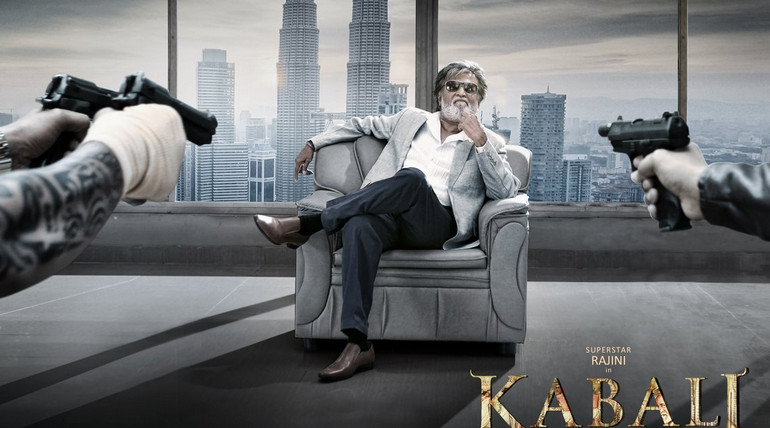A Mafia gangster is falsely imprisoned for his alleged involvement in the massacre at a temple where his closest relations also died. When he is eventually released from prison after serving 25 years, he seeks revenge. He finds that the background surrounding his imprisonment is more complicated than he expected. This is a criminal drama played by the legendary Tamil actor Rajinikanth and is at the same time a political comment on the problems of the Indian minority in Malaysia.
language: Hindi
subtitles: Czech, English
directed by: Pa. Ranjith
cast: Rajinikanth, Winston Chao, Radhika Apte
Known mainly from films produced by Kollywood, the Tamil cinema, Rajinikanth is one of the most beloved Indian actors ever. The difference between him and the famous Bollywood stars lies not only in his casual appearance but also in his life story. Unlike the majority of today’s Bollywood elite, Rajinikanth wasn’t born into a famous family of artists and worked as a messenger and bus conductor when attending acting classes.The characters Rajinikanth portrays in his films have helped establish an archetype of a typical Tamil hero: despite his working-class origin, he becomes an admired and respected leader of the masses thanks to his outstanding courage, strict personal ethics and superhuman physical strength (that helps him apply his moral principles) and is able to solve serious social problems and help the oppressed. Being a philanthropist and a politically influential figure off screen as well, it comes as no surprise that in Tamil, Rajinikanth is commonly called “thailava”, i.e. “leader”.
Although Rajinikanth’s popularity reaches as far as Japan where his 1995 film Muthu enjoys cult status, he is obviously most admired in the southern parts of India, particularly in Tamil Nadu. On the day of this film’s premiere, some companies even gave their employees a day off.
Yet Kabali represents a slight departure from Rajinikanth’s previous films since its main protagonist has human rather than superhuman features. The director Pa. Ranjith decided to situate the story in Malaysia, a country at the intersection of Indian and Chinese cultural circles. This fact is reflected in the formal aspects of the film which combines the genre conventions of South Indian police dramas with the elements of the now-defunct Hong Kong subgenre of heroic bloodsheds.
But Kabali does not lack a political dimension either. Malaysia is a multi-ethnic country and ethic and cultural identity has played a crucial role in its modern history – also because the social support programmes offered by the government deliberately favour ethnic Malays whose position on the social ladder is usually worse than that of the Indian and Chinese minority. But there are huge social differences among the Malay Indians, many of whom live in poverty and are often exploited as a cheap workforce for physically demanding activities.
Therefore, Rajinikanth’s mob boss in Kabali does not choose the life of crime for his own selfish interests but to redress the racial inequality.
Trailer Kabali







